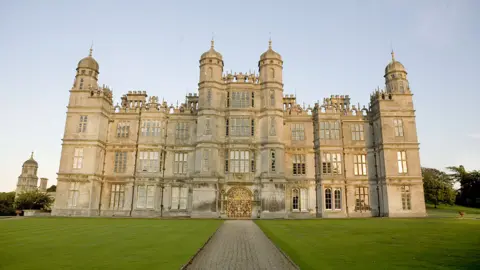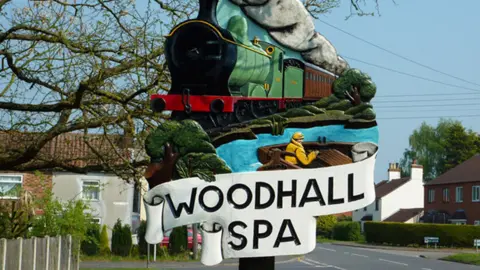MP calls for Lincolnshire slavery report to be 'shredded'
 BBC/Mike Hogan
BBC/Mike HoganAn MP has called for a report into Lincolnshire's historical links to the slave trade to be "shredded".
Historic England identified four places in the county with a "slavery past", including Burghley House in Stamford and the town of Woodhall Spa.
Conservative MP Sir John Hayes described the research as "no use whatsoever" and criticised "£15,000 of taxpayers' money" being spent on it.
Historic England said that it aimed to "retain and explain our heritage".
"Our job is to focus on facts in an impartial way; we are not making moral judgements.
"By sharing knowledge of England's history, as told through the fabric of our buildings and sites, our aim is that they become better understood and protected."
The organisation described The Transatlantic Slave Economy and England's Built Environment as "a research audit of how this transatlantic slave economy is reflected in England's built heritage".
 Richard Croft / Geograph
Richard Croft / GeographThe section on Lincolnshire mentions Burghley House being owned by the Cecil family, who in 1724 married into the family of Thomas Chambers "a London merchant who had grown rich in the West Indies".
Woodhall Spa is described as the seat of a branch of the Hotchkin family of Jamaican slave owners.
Other locations include the village of Blankney and Little Ponton Hall near Grantham which have links to London bankers who received government compensation for their plantations when slavery was abolished in the 1830s.
Sir John, the MP for South Holland and The Deepings, questioned why the report was drawn up and "why on earth spend £15,000 of taxpayers' money doing it?"
"I first thought it should be shelved, I now think it should be shredded," he said.
"It has no use whatsoever and it's indicative of an organisation that needs to be brought to order.
"Of course slavery was awful and of course it was right we abolished it, but I am not sure we need to go through this kind of comprehensive report linking tangentially all kinds of places and buildings to that effort."

Follow BBC East Yorkshire and Lincolnshire on Facebook, Twitter, and Instagram. Send your story ideas to [email protected].
